2024 Award Recipients
SPR Awards Recipients
Maureen Andrew Mentor Award

Mary Leonard, MD, MSCE
Stanford University
Dr. Leonard is the Arline and Pete Harman Professor and Chair of the Department of Pediatrics, Adalyn Jay Physician-in-Chief of Lucile Packard Children’s Hospital, and Director of the Stanford Maternal and Child Health Research Institute (MCHRI). Throughout much of her career, she devoted the majority of her effort to clinical research and mentoring junior investigators. Her overarching goal was to lead a vibrant, multidisciplinary, innovative, NIH-funded research program that attracts new trainees to clinical research and serves as a launching pad for junior investigators. As evidence of her commitment to mentoring, she was the PI of an NIH K24 award for ten years; this award supports effort mentoring junior clinical investigators. During her tenure at UPenn, she chaired the MS in Epidemiology thesis committee for 17 trainees and served as the primary mentor on more than a dozen NIH F32 and K23 awards and Foundation career development grants. Many of her mentees have established independent NIH-funded clinical research programs and ascended to major leadership positions. She was awarded the inaugural Faculty Mentor Award by the Children’s Hospital of Philadelphia.
More recently, as Chair of the Department of Pediatrics at Stanford University, Dr. Leonard created novel programs to support the development of fellows and junior faculty. She instituted a structured Bridge to K Program that provides selected graduating fellows with Instructor appointments, mentorship, and 75% protected time as they prepare and secure NIH K grants, and ultimately, faculty appointments. She created a departmental Office of Research Development to specifically support junior trainees during the development of K grants and the K-to-R transition. As Director of MCHRI, she spearheaded new initiatives to provide robust biostatistics, data management, and research infrastructure support to maternal and child health investigators across the University, including funds to support physician fellows on career development awards. MCHRI also provides MS tuition support for fellows seeking advanced training in health services research or clinical epidemiology and biostatistics.
Dr. Leonard has also instituted multiple programs to increase the diversity of the pediatric and physician scientist workforce. This includes pathways into pediatrics for URM high school students (The Pediatrics Internship Program at Stanford), undergraduate students (Maternal and Child Health Research Institute DRIVE program), medical students (Stanford Clinical Opportunity Residency Experience [SCORE]), and residents (Promoting Resident Experiences in the Subspecialties at Stanford [PRESS]). In 2018 the Department launched the Leadership Education in Advancing Diversity (LEAD) program with the vision of educating and empowering the next generation of medical leaders to carry forward the mission of diversity and inclusion. The results of the program include over 40 national and regional workshops from scholars. The program has expanded to include all clinical departments in the Stanford School of Medicine and was awarded the Stanford University President’s 2020 award for Excellence through Diversity.
Thomas A. Hazinski Distinguished Service Award

The Society for Pediatric Research (SPR) proudly announces that Hannah C. Glass, MDCM, MAS, has been chosen as the recipient of the 2024 SPR Thomas A. Hazinski Distinguished Service Award. Dr. Glass is a Professor of Neurology, Pediatrics, and Epidemiology of Biostatistics at the University of California, San Francisco. Dr. Glass is a neonatal neurologist and Director of Neonatal Neuro-Critical Care Services at the UCSF Benioff Children’s Hospital. She is also the program director of the Neonatal Neurology Fellowship Program. Dr. Glass has received funding from the NIH, March of Dimes, Cerebral Palsy Alliance, Patient Centered Outcomes Research Institute, and the Pediatric Epilepsy Research Foundation to conduct clinical research that aims to improve developmental outcomes following newborn brain injury.
The Thomas A. Hazinski SPR Distinguished Service Award honors a special individual who has provided exceptional service to the Society for Pediatric Research over an extended period of time. Dr. Glass was elected to SPR membership in 2011. During her membership, she has served SPR in the following positions: PAS Program Committee (2012-2018), SPR Councilor for Neurology (2015-2017), and Director of Membership on SPR Executive Council (2018-2023), SPR representative on the PAS Board of Directors (2021-current), , as well as SPR Nominating Committee, SPR Communications Committee, SPR Bridging to Success Award Committee, and SPR Selection Committee for the Japan Pediatric Society Fostering Leadership Program.
“We are so pleased to recognize Dr. Glass for her outstanding dedication to the Society and her commitment to training the next generation of translational researchers,” said SPR President Cristina Alvira. “A vital part of our organization, she has tirelessly served SPR in a wide range of activities for more than a decade. Her tremendous service to this organization has helped further our mission of creating a network of multi-disciplinary researchers to improve child health.”
The Society for Pediatric Research will present the Thomas Hazinski Distinguished Service Award to Dr. Hannah Glass during the PAS 2024 meeting. This event connects thousands of leading pediatric researchers and other healthcare providers worldwide united by a common mission: Connecting the global academic pediatric community to advance scientific discovery and promote innovation in child and adolescent health.
Dr. Glass’s dedication to advancing pediatric research and her outstanding service to the community exemplify the qualities that the Thomas Hazinski Distinguished Service Award seeks to recognize. The SPR extends its heartfelt congratulations to Dr. Glass on this well-deserved honor.
Society for Pediatric Research Award in Honor of E. Mead Johnson
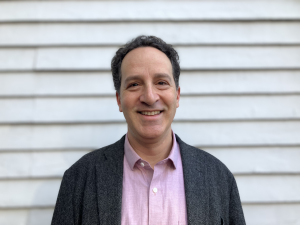
Daniel E. Bauer, MD, PhD
Boston Children’s Hospital
My research focuses on gene regulation in blood cells, in particular hemoglobin switching, the developmental regulation of globin gene expression. These studies have both fundamental and translational importance. By comparing common trait-associated genetic variation with epigenetic modification of primary human erythroid precursors, and applying genome editing technology, I have discovered an erythroid enhancer element of the BCL11A gene that is a critical determinant of fetal hemoglobin level and therapeutic target for the beta-hemoglobin disorders. I identified the guide RNA that is used in exa-cel, the first FDA-approved CRISPR-based gene-editing therapy. I have developed functional genomics methods to utilize genome editing to correlate genotype and phenotype in mammalian cells, including pooled CRISPR screening, sequence analysis and therapeutic nuclease, base and prime editing in primary patient hematopoietic stem cells. My ongoing studies continue to be translational in scope, defining novel therapeutic strategies for blood disorders and performing first-in-human studies of gene editing, as well as of fundamental biological significance, in investigating the genetic architecture of developmental hematopoiesis. I have identified a gene editing approach for universal amelioration of ELANE-mutant severe congenital neutropenia, described novel molecular mechanisms of HbF repression, illustrated how human genetic variation modifies gene editing risk, and uncovered nucleotide metabolism as a constraint on prime editing efficiency.
Douglas K. Richardson Award for Perinatal and Pediatric Healthcare Research
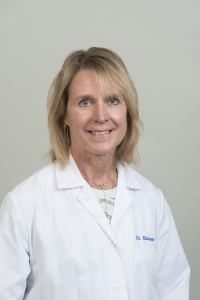 Anna-Barbara Moscicki, MD
Anna-Barbara Moscicki, MD
University of California, Los Angeles
Dr. Anna-Barbara Moscicki is a Professor of Pediatrics at University of California, Los Angeles, Chief, Division of Adolescent and Young Adult Medicine, Associate Executive Chair for Clinical Research, and Chair, Clinical Trials Committee for Pediatrics. She has 35+ years of experience working in the field of molecular epidemiology, behavioral studies of adolescents, mucosal immunology, and phase I and II clinical trials. Much of her work has focused on detailing the natural history of HPV in adolescents and young adults, primarily from a 25-year study “Natural History of HPV in Teens”. Her work has also involved children and adolescents living with HIV working with several national networks including Adolescent HIV and AIDS Research Network (AMHARN), Adolescent Therapeutic Trials Network, IMPAACT and Pediatric HIV/AIDS Cohort study. Much of her work has influenced public health policies involving age to start HPV vaccinations, cervical and anal cancer screening in general and vulnerable populations. She is past president of ASCCP, and received the Distinguished Scientific and Meritorious Service award as well as Award of Merit for Screening for cervical cancer and Management of abnormal cytology in non-HIV immunocompromised women. She also received the AAP’s Adele Hofmann Lifetime Achievement Award in Adolescent Medicine for her work on HPV and adolescents. has served on multiple national and international committees including CDC, NIH, PATH, WHO and SAGE. She is a current Board Member of International Papillomavirus Society (IPVS).
Bridging to Success Award

Neha Joshi, MD, MS
Neha S Joshi, MD MS is a Clinical Scholar in the Division of Pediatric Hospital Medicine at Stanford University. She completed her MD with Distinction at the University of California San Francisco, followed by both residency in Pediatrics and fellowship in Pediatric Hospital Medicine at Stanford University. Dr. Joshi additionally completed a Masters in Clinical Research and Epidemiology at Stanford University. Her research program seeks to identify and implement high value care practices for late preterm and term infants during the birth hospitalization. Dr. Joshi’s prior work has included the development of a clinical examination-based approach to identifying late preterm and term infants at risk for early onset sepsis; this work won the Jennifer Daru Memorial Award for manuscript with most potential to impact clinical care. Dr Joshi is currently working on identifying evidence-based admission criteria, clinical benchmarks, and quality markers for late preterm infants. She is supported by a NIH F32 Ruth L. Kirschstein Postdoctoral Individual National Research Service Award and the Gerber Foundation.
PROSPER Diversity Award

Paula Dias Maia, MD
University of Colorado
Dr. Paula Dias Maia, MD, is a second-year fellow in the Division of Neonatology at the University of Colorado. She graduated medical school cum laude from the Federal University of Rio de Janeiro in Brazil, where she was born and raised, and completed her residency in Pediatrics at the University of Colorado. Her primary interests include neonatal hemodynamics, pulmonary vascular disease, pulmonary hypertension, and bronchopulmonary dysplasia. Her current research at the Colorado Pulmonary Heart Lung Center focuses on understanding the effects of antenatal inflammation on pulmonary endothelial cell diversity and cardiopulmonary sequelae. Dr. Dias Maia is also passionate about advancing diversity, equity, and inclusion in the medical field and serves as a junior mentor for the New Century Scholars Mentoring Program

Srishti Jayakumar, MBBS, MPH
Johns Hopkins University School of Medicine
Srishti was born and raised in Mumbai, India, where she found her passion for health services research. Her work with Teach for India setting up pediatric screening programs demonstrated the role that systemic inequity and chronic disinvestment played in poor health outcomes for neonates and infants from disadvantaged backgrounds. She obtained a Master of Public Health (MPH) at Johns Hopkins School of Public Health, working closely with the Baltimore community in her roles leading the Child Health Society and as a researcher with the neonatal follow-up clinic at the Kennedy Krieger Institute, witnessing the incredible resilience and fortitude with which families navigated health systems that were not always designed to serve them. Her clinical experiences have informed her advocacy efforts serving as district and national representative to the Equity, Diversity and Inclusion Workgroup for AAP SOPT, as invited member of the Michigan Advocacy Committee, and now, as Fellow Representative to the Hopkins Diversity Council. The amalgam of these experiences has strengthened her deep commitment to untangling and eliminating drivers of neonatal health disparities.
Srishti aims to become a neonatal health services clinician-researcher, with a focus on outcomes of high-risk NICU graduates and an emphasis on interventions to improve neurodevelopmental outcomes in underserved populations. Socioeconomic disparities have a lasting impact on the health of neonates and infants, yet they remain poorly studied in the literature. With the support of a multidisciplinary team, Srishti will evaluate the association of indices of socioeconomic vulnerability with the follow-up care, health utilization and ultimately neurodevelopmental outcomes among high-risk neonates with hypoxic-ischemic encephalopathy. Initial results from her study have demonstrated significant differences in cognitive outcomes at 24 months of age for neonates living in areas with greater vulnerability at the census-tract level. Srishti aspires to utilize this research to identify areas for potential solutions and design evidence-based targeted interventions to improve outcomes for vulnerable neonates.
New Member Outstanding Science Award
 James Bayrer, MD,PhD
James Bayrer, MD,PhD
University of California, San Francisco, School of Medicine
James Bayrer, MD,PhD is a board certified pediatric gastroenterologist at the University of California, San Francisco. He obtained his medical degree and Ph.D. in pharmacology at Case Western Reserve University. He completed his residency and fellowship training at the University of California, San Francisco, where he currently serves as the pediatric gastroenterology fellowship director. The intestine represents the largest exposed surface area in the body, standing at the interface between the ever-changing luminal environment and the host. Dr. Bayrer’s laboratory is keenly interested in understanding how the gut senses and responds to this dynamic environment and how maladaptive responses may trigger intestinal disorders such as inflammatory bowel disease and irritable bowel syndrome. His laboratory utilizes mouse models of disease coupled with mouse and human intestinal organoids to probe the key molecular contributors to gut epithelial regeneration and gut-brain signaling. Dr. Bayrer’s laboratory has made key contributions to the understanding of how gut epithelial sensory enterochromaffin cells influence visceral pain and how the nuclear receptor NR5A2 promotes intestinal epithelial restitution following injury.
SPR Awards to Enhance Diversity in the Research Workforce
Srishti Jayakumar, MD, MPH
Johns Hopkins School of Medicine
Eastern SPR
Srishti was born and raised in Mumbai, India, where she found her passion for health services research. Her work with Teach for India setting up pediatric screening programs demonstrated the role that systemic inequity and chronic disinvestment played in poor health outcomes for neonates and infants from disadvantaged backgrounds. She obtained an MPH at Johns Hopkins, working closely with the Baltimore community in her roles leading the Child Health Society and as a researcher with the neonatal follow-up clinic at Kennedy Krieger, witnessing the incredible resilience and fortitude with which families navigated health systems that were not always designed to serve them. Her clinical experiences have informed her advocacy efforts serving as district and national representative to the Equity, Diversity and Inclusion Workgroup for AAP SOPT, as invited member of the Michigan Advocacy Committee, and now, as Fellow Representative to the Hopkins Diversity Council. The amalgam of these experiences has strengthened her deep commitment to untangling and eliminating drivers of neonatal health disparities.
Srishti aims to become a neonatal health services clinician-researcher, with a focus on outcomes of high-risk NICU graduates and an emphasis on interventions to improve neurodevelopmental outcomes in underserved populations. Socioeconomic disparities have a lasting impact on the health of neonates and infants, yet they remain poorly studied in the
literature. With the support of a multidisciplinary team, Srishti will evaluate the association of indices of socioeconomic vulnerability with the follow-up care, health utilization and ultimately neurodevelopmental outcomes among high-risk neonates with hypoxic-ischemic encephalopathy. Initial results from her study have demonstrated significant differences in cognitive outcomes at 24 months of age for neonates living in areas with greater vulnerability at the census-tract level. Srishti aspires to utilize this research to identify areas for potential solutions and design evidence-based targeted interventions to improve outcomes for vulnerable neonates.
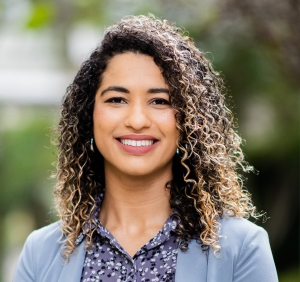
Camille Fonseca, MD, MPH
University of Chicago, Comer Children’s Hospital
Western SPR
Camille Fonseca, MD, MPH is a third year resident at the University of Chicago Comer Children’s Hospital. She attended Emory University for medical school and obtained a Master’s of Public Health from the Yale School of Public Health. She will be a Chief Resident at Comer starting this June, after which she plans to pursue a career in neonatology.
Her research interests include the outcomes of resuscitation of extremely premature infants and the ethical issues surrounding periviability. She is also a part of many efforts to recruit and mentor undergraduate and medical students who are interested in pediatrics, particularly for students from underrepresented minority backgrounds.
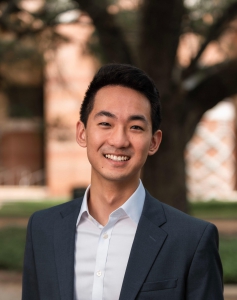
Caleb Shi, BA
McGovern Medical School at UTHealth Houston
Southern SPR
My research investigates the sex-specific differences in metabolic processes in neonates with cyanotic congenital heart defects (CHDs). Congenital heart defects are the most common type of congenital birth defect. Unfortunately, female neonates have significantly worse outcomes compared to males, and the mechanism underlying these differences is not understood.
Through studying the transcriptomic and metabolomic profiles of CHD neonates, we uncovered evidence that suggests female neonates with CHD have distinct metabolic profiles compared to males. Females had heightened levels of iron dysregulation, oxidative stress response, and lipid peroxidation, potentially indicating a greater susceptibility to ferroptosis-mediated cell death. Because these findings were not found between sexes in our control set, these results highlight a potential relationship between sex and ferroptosis driven by hypoxia.

Daniah Beleford, MD, PhD
University of California, Davis
Western SPR
The Beleford Lab studies underlying changes in molecular signaling that cause vascular malformations (abnormal development of blood vessels) in Hereditary Hemorrhagic Telangiectasia and other genetic vascular conditions. Hereditary Hemorrhagic Telangiectasia (HHT) is a rare Mendelian vascular condition that is characterized by arteriovenous malformations (AVMs), direct connections between arteries and veins without intervening capillary beds. AVMs may form in any organ but are most often detected in the lung, liver, brain, and GI tract and confer significant mortality risk from devastating rupture or hemorrhage. HHT derives its name from small, dilated blood vessels (telangiectases) that form in the skin and mucosal surfaces of most patients. HHT is caused by heterozygous loss of function of ENG or ACVRL1 (aka ALK1), genes that encode endothelial receptors for TGFβs and BMPs. SMAD4, the common co-SMAD for TGFβ and BMP9 signaling, causes 1% of HHT cases. A fundamental question to the study of HHT pathobiology is why some patients develop vascular malformations while others do not. We hypothesize that the genetic modifier PTPN14 (protein tyrosine phosphatase, nonreceptor, 14) modifies and potentiates vascular malformations in HHT and other vascular conditions. It has previously been shown that single nucleotide polymorphisms within PTPN14 associate with pulmonary AVMs in two large HHT cohorts. Our preliminary data suggest that the PTPN14 gene product binds and stabilizes BMP9 signaling components in endothelial cells, inhibiting ubiquitin-mediated protein turnover and promoting vascular stability. The Beleford Lab seeks to clarify the molecular interplay between PTPN14 and BMP9, TGFβ, and HIPPO signaling pathway components with the goal of understanding what causes the loss of vascular integrity in HHT and other severe vascular conditions in order to ultimately tailor targeted therapeutic interventions.
Dr. Beleford has consistently demonstrated a commitment to a career in biomedical research and a devotion to increasing the recruitment and retention of historically under-represented groups in STEM. She was born in Jamaica and raised in the Bronx. She attended Bronx public schools and Cornell University, where she majored in biology with a concentration in genetics and development. She is a first-generation college graduate. She then completed the Medical Scientist Training Program (MSTP) at Mayo Clinic College of Medicine in 2014, earning both an MD and PhD in biomedical sciences, biochemistry, and molecular biology for her detailed study of the serine protease High temperature requirement A3 (HtrA3) in lung cancer under Dr. Viji Shridhar.
Dr. Beleford is also board-certified clinical geneticist who completed both residency and fellowship in medical genetics and genomics at the University of California, San Francisco. She was recruited as an Instructor of Pediatrics during her fellowship and was promoted to Assistant Professor of Pediatrics in 2022. During her residency and fellowship, she was the lead investigator on three clinical studies characterizing rare pediatric genetic conditions for which she was first author on manuscripts published in American Journal of Medical Genetics and European Journal of Medical Genetics. While maintaining a small clinical genetics practice, Dr. Beleford also joined the lab of Dr. Rosemary Akhurst at the UCSF Helen Diller Family Comprehensive Cancer Center as a postdoctoral scholar. Her project examined the underlying genetic causes of vascular malformations in HHT. Her research was supported by a T32 training grant through the UCSF Lung Biology Program. She was also awarded a University of California President’s Postdoctoral Fellowship for her study of the role of PTPN14 in BMP9 and Hippo signaling in HHT. She was recruited to UC Davis in January 2023 and currently holds joint appointments as an Assistant Professor of Pediatrics and Physiology & Membrane Biology.
Young Investigator Award
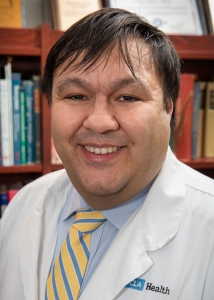
Steven J. Jonas, MD, PhD
University of California, Los Angeles (UCLA)
Dr. Steven J. Jonas M.D., Ph.D. is an Assistant Professor of Pediatrics at the University of California, Los Angeles (UCLA) David Geffen School of Medicine, and an investigator at UCLA’s California NanoSystems Institute and Broad Stem Cell Research Center. His laboratory explores new ways to probe and engineer cells that leverage advances in microfluidics, nanofabrication, and gene editing approaches. In his clinical practice, he serves as an attending physician at UCLA Mattel Children’s Hospital where he directs the care of patients with a variety of hematologic and oncologic conditions as well as those undergoing hematopoietic stem cell transplantation and/or gene therapy. He also serves as the Associate Program Director of the UCLA Pediatric Hematology/Oncology Fellowship Program where he has fostered an inclusive scientific training environment that guides the next generation of pediatric hematology/oncology physicians as they embark on their research journeys.
Dr. Jonas received his M.D. and Ph.D. from UCLA through its NIH-supported Medical Scientist Training Program. His Ph.D. training in Materials Science and Engineering under the direction of Professor Bruce Dunn investigated the design of functional materials tailored for controlling the maintenance and lineage-specific differentiation of pluripotent stem cell populations. He completed his clinical training in Pediatrics and Pediatric Hematology/Oncology at the UCLA Mattel Children’s Hospital. During his Pediatric Hematology/Oncology fellowship, he joined the lab of Professor Paul S. Weiss where he established his current research program that targets the development of nanotechnology-enabled cellular therapy manufacturing platforms for gene and stem cell-based therapeutics.
Dr. Jonas’ research explores the intersection of pediatrics, hematology/oncology, stem cell biology, bioengineering, and nanoscience & nanotechnology. His laboratory harnesses advances in these areas to develop and apply new, broadly applicable and accessible technologies and methodologies that support the children’s health and regenerative medicine research communities along two themes: i) developing efficient, high throughput, and economical gene and cell therapy manufacturing platforms; and ii) fueling precision pediatric oncology via the translation of liquid biopsy methods that can help amass the data required for longitudinal and real time molecular profiling of pediatric malignancies and monitoring their response to treatment dynamically. These capabilities advance the laboratory’s efforts to create tools that enable stem cell biologists to probe and to interact with stem cells more precisely and empower clinician scientists to apply this knowledge to design and implement new treatments more quickly. By engaging in these efforts, his team is helping to accelerate the discovery and democratize the implementation of emerging gene and cellular therapeutic strategies and precision medicine-focused diagnostic approaches that will unlock new solutions for impacting the care of children with complex healthcare needs. Dr. Jonas has received several awards for his research, including a Director’s Early Independence Award from the National Institutes of Health and has been the recipient of Young Investigator and Scholar awards from the Alex’s Lemonade Stand Foundation for Childhood Cancer Research, the Hyundai Hope on Wheels Foundation, and the Tower Cancer Research Foundation.
SPR and APS Joint Award Recipient
Mary Ellen Avery Neonatal Research Award
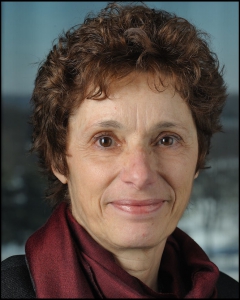
The American Pediatric Society (APS) and the Society for Pediatric Research (SPR) are pleased to announce Donna M. Ferriero, MD, MS, as the recipient of the 2024 Mary Ellen Avery Neonatal Research Award. This award honors a pediatric investigator who has made important contributions to neonatal health through basic or translational research.
FOPO Award Recipient
Joseph W. St. Geme, Jr. Leadership Award
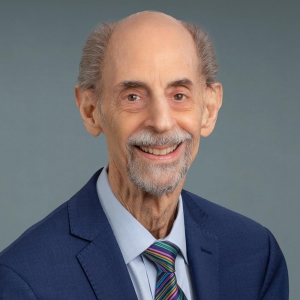 Benard P. Dreyer, MD
Benard P. Dreyer, MDPediatrician Dr. Benard P. Dreyer is the 2024 Joseph W. St. Geme, Jr. Leadership Award recipient. Dr. Dreyer is a leader with a lifetime record of significant contributions to child health and the profession of pediatrics. He has had a major impact in the areas of health equity, child poverty, diversity and inclusion, early brain and child development, and the promotion of pediatric research. Dr. Dreyer is an Academic General Pediatrician and Developmental-Behavioral Pediatrician who has devoted his professional career to serving poor children and families who are mostly immigrants or minoritized.
Abstract Related Awards Recipients
House Officer Research Award

Motunrayo Adu, MD
Yale New Haven Children’s Hospital
Motunrayo Rebecca Adu, known by her peers as Becky, is a 3rd-year pediatric resident at Yale New Haven Children’s Hospital, where she serves as co-president of the Diversity Council and future pediatric chief resident. Her research interests are centered around diversity, equity, and inclusion. Currently, she is working on QI (Quality Improvement) initiatives with a focus on reducing disparities related to the use of restraints in behavioral health patients who present with agitation in the pediatric emergency department. Her research is based on a study conducted in her own health system, where they discovered that black children were more likely to be restrained, even after taking demographic and clinical characteristics into account. By creating a multidisciplinary team of providers and implementing various interventions, they were able to identify and address barriers to managing agitation, which led to a decrease in disparities in the use of pharmacological or physical restraints.
Becky is a passionate individual who is dedicated to mentoring and serving underrepresented communities. In November 2017, she co-founded EmpowHer, an organization that provides educational support, leadership skills, and mentorship to women of color interested in pursuing a medical career. Becky enjoys powerlifting, painting, and spending time with loved ones in her free time.

Don Laing, MBChB
The University of Auckland
Don Laing, MBChB, is a medical professional and emerging researcher from New Zealand. He has received this award in recognition of his contributions to neonatal care through the groundbreaking Neonatal Glucose Care Optimization (NeoGluCO) Study, addressing critical questions concerning the management of severe and recurrent transitional neonatal hypoglycemia.
The NeoGluCO Study, a rigorously designed double-blinded, randomized controlled trial, investigated whether early administration of diazoxide in neonates experiencing recurrent and severe transitional hypoglycemia could expedite the resolution of hypoglycemia by targeting the underlying pathophysiology of hyperinsulinism. Don’s involvement in protocol development, systematic review completion, recruitment, data analysis, and publication were instrumental to the study’s success and impact.
Don acknowledges the invaluable guidance and mentorship provided by Associate Professor Chris McKinlay and the entire NeoGluCO research team, nurturing his development as a clinical researcher. Their unwavering support has played a pivotal role in cultivating his commitment to an academic medical career in the field of pediatrics.
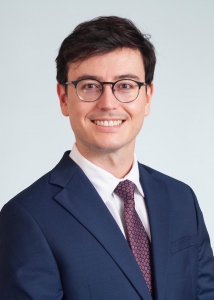
Jose Tascon Arcila, MD
Boston Children’s Hospital
I have been a research fellow learning how basic sciences are applied to understand complex medical conditions affecting children. My research is focused on studying how risk factors in inflammatory bowel disease (IBD), namely Intelectin-1 (ITLN1), affect the host’s risk of developing intestinal inflammation. During this period, I have developed proficiency in microscopy and immunology research techniques. I led the generation of fluorescence microscopy data that are part of the article published in the Journal of Experimental Medicine in 2022. In addition, I am currently studying how ITLN1 downregulation is related to the development of childhood obesity and the role of the microbiota in early rapid weight gain.
Student Research Award

Mahira Hassan
University of Calgary
I had the distinct privilege to work with Dr. Shabih Hasan on investigating the optimum oxygen saturation targets in preterm infants born between 22 weeks and 30 weeks gestation. Despite extensive research, identifying the safest and most effective arterial oxygen saturation targets, as measured by pulse oximetry (SpO2), in premature infants has proven elusive. In all five Calgary neonatal intensive care units (NICUs) affiliated with the University of Calgary, the SpO2 targets were increased to 90%-95% from 88%-92% on December 1, 2018. This change in SpO2 targets prompted our current study, which sought to compare data from the periods preceding (2015-2017) and following (2019-2022) the target SpO2 adjustment, thereby contributing to the ongoing investigation into the optimum SpO2 range for preterm infants.
My responsibilities encompassed the comprehensive analysis of both paper and electronic charts for over 1,200 preterm infants, spanning from their NICU admission at birth to their discharge from relevant outpatient clinics. From this analysis, I compiled more than 100 relevant morbidities and factors into organized spreadsheets for analysis. Collaborating closely with the Pediatric ophthalmologist and statistician, I facilitated the examination of the data and subsequently prepared illustrations and composed the abstract based on our findings.
Our primary outcome-based discoveries demonstrated an increase in the incidence of Retinopathy of Prematurity (ROP), with heightened severity and a greater number of eye treatments observed in the higher SpO2 cohort. Additionally, rates of Bronchopulmonary Dysplasia (BPD) rose from 44.7% to 52.8% within this elevated SpO2 range. These findings contribute to the evolving understanding of optimal oxygen saturation targets for preterm infants. We are currently in the process of performing logistic regression analyses to identify mechanisms leading to an increase in BPD and ROP rates.

Daphne Yu
Stanford University
Congenital Central Hypoventilation Syndrome (CCHS) and Rapid-onset Obesity with Hypothalamic dysfunction, Hypoventilation, and Autonomic Dysregulation (ROHHAD) are rare disorders affecting the autonomic nervous system and breathing control due to gene mutations. Recent research suggests that individuals with these conditions may face increased cardiovascular risks as they age, but reliable biomarkers for such risks are lacking. This study aimed to investigate abnormal nocturnal blood pressure (BP) dipping patterns in CCHS and ROHHAD patients as potential biomarkers for cardiovascular risk.
The study conducted 24-hour ambulatory BP monitoring in a cohort of 14 patients (11 with CCHS, aged 15-24 years; 3 with ROHHAD, aged 17-19 years). Results showed that a significant portion of both CCHS and ROHHAD patients exhibited abnormal nocturnal BP dipping patterns, with variations observed from night to night. This suggests a potential correlation between abnormal BP dipping and cardiovascular risk in these populations. Further longitudinal studies are warranted to explore this association and its implications for managing cardiovascular health in individuals with CCHS and ROHHAD.
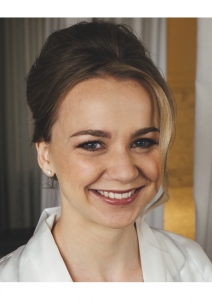
Philippa Rees, BSc (Hons) MBBCh MPhil MRCPCH
UCL Great Ormond Street Institute of Child Health
Dr Rees is an NIHR Doctoral Fellow with an interest in improving population child health through leveraging routine data to inform policy and practice. As part of her NIHR award Dr Rees leads the CHERuB study (NIHR 301457). The CHERuB study is harnessing and link several national datasets to establish a population matched cohort study, enabling the exploration of long-term health and educational outcomes of children after perinatal brain injury.
This award is in recognition of one of the first outputs of the CHERuB study, reporting on 2-year functional outcomes of preterm infants after intraventricular haemorrhage.
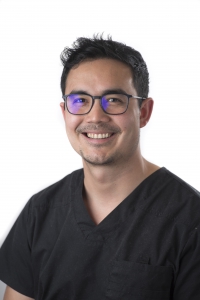
Lindsay Zhou, MBBS
Monash University
Dr Lindsay Zhou is a neonatologist at Monash Children’s Hospital, Melbourne, Australia, and is completing his PhD at the Ritchie Centre, Monash University.
Lindsay’s PhD has explored the use of umbilical cord blood-derived cell therapy for preterm brain injury. His studies have involved examining the effects of cord-blood cell therapy in a pre-clinical large animal model of preterm brain inflammation, and completing a world-first clinical trial of autologous cord-blood derived cell therapy for extremely preterm infants (the CORD-SAFE study).
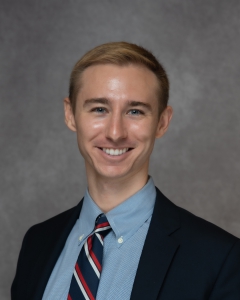
Joseph DelFerro, MD/MPH
Perelman School of Medicine
I am currently a fourth-year MD/MPH student at the Perelman School of Medicine and will begin Pediatric residency training after graduation this spring. Under the amazing mentorship of Dr. Sarah Wood, I have studied the disparities in mental health outcomes between Lesbian, Gay, Bisexual, Transgender, Queer, and/or Questioning (LGBTQ+) and non-LGBTQ+ adolescents, as well as the impact of positive family support behaviors on this relationship. More specifically, I am interested in determining if actionable information about these relationships can be successfully obtained using brief electronic screening questionnaires implemented in the primary care setting.
By demonstrating the importance of these variables in predicting outcomes, I hope that this work leads to further integration of these screening methods into practice and the development of interventions focused on increasing family support behaviors and decreasing disparities for LGBTQ+ youth. I hope to continue to integrate my passions for public health and pediatric clinical medicine in residency through research and implementation projects that attempt to identify and combat societal and structural factors that negatively impact health outcomes for vulnerable youth.

Genevieve McCormack, BS, MD Candidate
Upstate Medical University
The abstract that I am presenting at the annual Pediatric Academic Societies (PAS) meeting is the culmination of the work I accomplished during the Child Health Research Internship at the University of Colorado Anschutz Medical Campus. I am currently a second year medical student an Upstate Medical University and I applied for this competitive internship because I wanted to spend the summer between my first and second years of medical school strengthening my research skills and learning more about Pediatrics. I have a strong interest in pediatric critical care. Thus, I chose the laboratory of Dr. Eva Nozik, a pediatric intensivist and a physician scientist who researches redox signaling in pulmonary diseases and inflammation.
The title of my research project is “Circulating EC-SOD protects against platelet activation and accumulation of platelets, neutrophils and platelet- neutrophil aggregates in the lung in S. aureus pneumonia”. Platelet activation and infiltration into the lung is a key step in the pathogenesis of acute respiratory distress syndrome (ARDS). Platelets can be activated by reactive oxygen species (ROS) and generate ROS in an auto-amplifying loop leading to further oxidative stress, leukocyte recruitment, and lung injury. An important anti-oxidant in the lung that protects against ROS is extracellular superoxide dismutase (EC-SOD). In Dr. Nozik’s laboratory we used a mouse model with a single nucleotide polymorphism in this enzyme (R213G) to study how changing the location of the enzyme from the lung to circulation may be protect against lung inflammation in response to S. aureus pneumonia. We hypothesized that R213G mice will have attenuated platelet activation and platelet-neutrophil aggregation and accumulation in the lung with S. aureus pneumonia. To investigate this hypothesis, I first infected wild type and R213G mice with S. aureus and waited for 12 hours to collect measurements. In blood and lung, I measured EC-SOD levels by Western Blot and I performed complete blood counts to measure circulating platelets and leukocytes. Next, I assisted my lab members in measuring the amount of recruited and circulating platelets, neutrophils and platelet-neutrophil aggregates using flow cytometry. Then, I performed immunostaining for CD41, platelet marker, to quantify lung platelets and I used H&E stained lung samples to perform acute lung injury scoring. Lastly, with the help of my lab members and amazing mentors we also measured superoxide levels in the blood and lung as well as measured markers of platelet activation. This work revealed that R213G mice have increased levels of circulating EC-SOD and this protects against an increase in ROS when infected with S.aureus. We also found that S.aureus infected mice have attenuated platelets, neutrophils and platelet-neutrophil aggregates in the lung and in circulation, as well as attenuated platelet activation. These results are significant as they indicate that redox regulated signaling is critical to understanding inflammation and implicates platelet activation as a key process.
Japan Pediatric Society (JPS)/SPR Fellows’ Exchange Award

Takahiro Kanzawa, MD
Nagoya University Graduate School of Medicine
Cerebral palsy is caused by various perinatal brain injuries, resulting in neurological symptoms such as motor impairment. We have previously shown that administering stem cells from human exfoliated deciduous teeth (SHED) significantly ameliorates motor, memory, and learning deficits in a hypoxic-ischemic encephalopathy (HIE) rat model with neurological symptoms. However, the underlying mechanisms remain unclear. This study aims to elucidate the mechanisms by which SHED ameliorates neurological symptoms in a HIE rat model.
Histological evaluation showed increased neurogenesis: a significant increase in bromodeoxyuridine and doublecortin double-positive cells, in the hippocampal dentate gyrus (DG) and subventricular zone after two weeks of SHED administration. In vitro experiments showed that co-culturing neural stem cells with SHED resulted in a significantly higher growth rate compared to other stem cells. Furthermore, the SHED-conditioned medium contained more neurotrophic factors than other stem cells-conditions mediums.
These findings suggest that SHED administration in the chronic phase promotes neurogenesis and ameliorates motor, memory, and learning impairments in HIE model rats with neurological symptoms, through neurotrophic factors secreted by SHED.
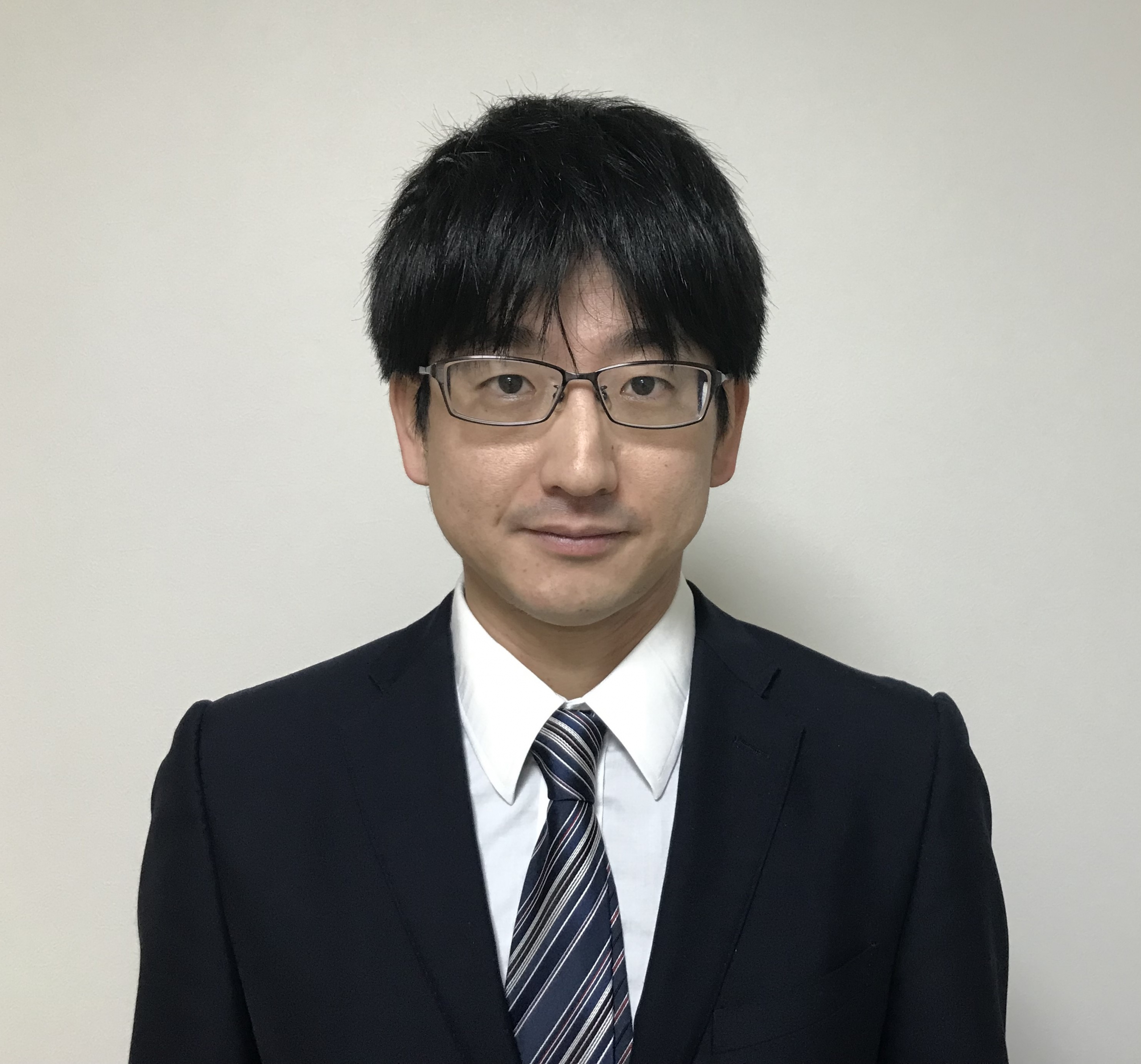
Yuji Ohnishi, MD, PhD
Yamaguchi University Graduate School of Medicine
This study aimed to investigate the candidate proteins related toing the development of coronary artery lesions in Kawasaki disease patients. Our study findings indicate that Histidine rich glycoprotein may be a potential reliable biomarker for predicting coronary artery lesion formation in Kawasaki disease patients.
European Society for Pediatric Research Young Investigator Exchange Award
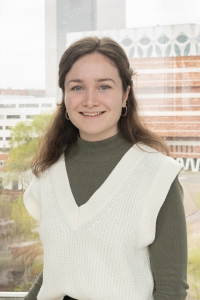
Jip Spekman, BSc
Leiden University Medical Center
My research focuses on the long-term effects of selective fetal growth restriction in monochorionic twins. These twins share a single placenta that is unequally shared, subsequently leading to a large birth weight discordance. We investigate whether this growth discordance leads to differences in long-term outcomes in order to provide both caregivers and parents with more information on what to expect and what to watch for.
Accumulating evidence shows that fetal malnutrition can negatively affect early lung development and function, as lung development starts early in pregnancy. Yet, studies regarding the impact of fetal growth restriction on lung function in singletons are subject to genetic, obstetric, and maternal factors potentially influencing the outcomes. Therefore, we aimed to investigate the effect of fetal growth restriction on childhood lung function in a discordant identical twin model, where we compare the growth-restricted twin with its appropriately grown co-twin, thereby naturally eliminating potential confounders.
We found that discordant fetal growth in monochorionic twins is associated with a reduction in static lung volume with an equivalent decrease in dynamic lung function. Furthermore, our analysis showed that fetal growth restriction is associated with a reduction in lung diffusion, even when taking the reduced lung volume into account. This indicates that adverse growth conditions in these twins negatively affect lung development and function, potentially contributing to an increase in respiratory morbidities later in life. Therefore, screening in those with concomitant risk factors and timely counseling of additional hits on lung function is warranted in those born after FGR.
Fellows’ Basic Research Award (3 awards given annually)

Betty Pham, MD, MS
UC San Diego/Rady Children’s of San Diego
I am a third-year Neonatal-Perinatal Medicine fellow at the University of California, San Diego-Rady Children’s Hospital (UCSD/RCHSD) conducting developmental lung biology research under the mentorship of Dr. David McCulley, a neonatologist-scientist within our division. I am honored to receive this award – it is a privilege to conduct research that has an impact on neonatal care. I am fortunate to be developing a career as a neonatologist-scientist studying the genetic mechanisms of pulmonary vascular development to better understand persistent pulmonary hypertension (PPHN).
Our research group currently studies the genetic etiologies and mechanisms of congenital diaphragmatic hernia (CDH) using a murine model. While there is increasing usage of advanced cytogenetic analysis to determine genetic etiologies of NICU pathology, there is still little known about the role of genetic mechanisms in CDH pathogenesis. In this work, I have designed and conducted experiments to study a common gene variant (GATA4 loss-of-function) identified in CDH patients via genetic mouse models to generate an inducible, tissue-specific gene deletion. The results of this work suggested that patients with GATA4 loss-of-function (LOF) variants have a phenotype of lung hypoplasia and pulmonary hypertension due to mechanical compression and not due GATA4 LOF in the developing lung. Our group aims to impact the high rates of mortality/morbidity in CDH patients by elucidating the pathways in which the genetic mechanisms lead to a phenotype, thereby directing patient-specific interventions.

Michael Smith, MD
University of California, San Francisco
I am a 4th year Pediatric Critical Care Fellow and T32 Research Fellow in the Multidisciplinary Research Training Program in Pediatric Pulmonary Vascular Disease. My research interests are focused on improving our understanding of right ventricular remodeling in congenital heart disease-associated pulmonary hypertension. Our work aims at gaining insight into the unique ventricular hypertrophy that develops in congenital heart disease in hopes of identifying new means of supporting right ventricular function.
We utilize a sheep model of congenital heart disease-associated pulmonary hypertension to achieve these aims. In our model, a fetal surgery is performed on the late gestation lamb to insert an aortopulmonary graft that postnatally introduces a chronic left-to-right-shunt. As a consequence of this shunt physiology, these lambs develop pulmonary vascular disease and right ventricular hypertrophy. My work has involved a multimodal assessment of the right ventricles of these animals, including invasive hemodynamic measurements, immunohistochemical assessments, and transcriptomic analyses. Our efforts thus far have produced novel insights into the mechanisms of myocardial growth, cardiomyocyte morphology, microvascular structure, and transcriptional signatures that underlie the unique development of an adaptively hypertrophied right ventricle in congenital heart disease-associated pulmonary hypertension.

Jingshing Wu, MD, PhD
University of California-San Francisco
Dr. Jingshing Wu is a physician-scientist and neonatology fellow. She is interested in investigating molecular mechanisms that regulate cardiac development in an effort to improve our ability to diagnose congenital heart disease and/or to develop therapies. She is currently pursuing her postdoctoral research under the mentorship of Dr. Benoit Bruneau at the Gladstone Institutes/UCSF. The work recognized by this award was performed through a collaboration between the Bruneau lab and Katherine Pollard’s lab at the Gladstone Institutes. It employs the use of artificial intelligence, which has greatly improved our ability to diagnose diseases with underlying genetic underpinnings, to study congenital heart disease.
David G. Nathan in Basic Research Award (1 award given annually)
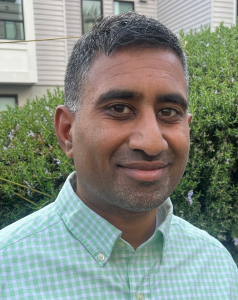
Rameshwar Rao, MD PhD
Stanford University
I am currently a fourth-year clinical and postdoctoral fellow in Pediatric Hematology/Oncology at Stanford University through the Accelerated Research Pathway by the American Board of Pediatrics. My scientific training spans over a decade of published research in the fields of vascularized bone tissue engineering, biomineralization, gene therapy, and spectral ultrasound. Together with my primary mentor, Professor Sarah Heilshorn PhD, Associate Chair of Materials Science and Engineering, we have designed an innovative approach to understand malignant cell and extracellular matrix interactions to identify novel drug targets to improve survival outcomes in pediatric osteosarcoma.
Osteosarcoma is the most common bone tumor in the pediatric population and has a poor 5-year survival rate of 60-70% for primary disease and 20% in metastatic disease. A major limitation of developing effective new treatments is the lack of representative tumor models. Through the combination of tissue engineering and biomaterials approaches, I have engineered a 3D in vitro model of osteosarcoma by embedding malignant cells in a collagen type 1 hydrogel, which mimics the primary extracellular matrix component of bone. I hypothesized that interactions between osteosarcoma cells and the extracellular matrix promote tumorigenesis and decrease chemotherapy response. I have observed a right-shift in the half-maximal inhibitor concentration (IC50) curve in response to front-line chemotherapy of cells cultured in 3D matrices. We identified the ABCG2 drug efflux pump, a mediator of chemoresistance, as potential mechanism behind these findings. We created a metronomic chemotherapy regimen combining a low-dose of regorafenib, a tyrosine kinase inhibitor used in relapsed osteosarcoma patients, to inhibit ABCG2 and shit the IC50 curve to the left, therefore overcoming chemoresistance induced by cell-matrix interactions. I contributed to all aspects of the project, including designing and characterizing the biomaterial, conducting cell culture and assays. My work will improve our understanding of the pathogenesis of pediatric osteosarcoma, potentially leading to better treatment outcomes for this vulnerable patient population.
Basic Research Award for Fellows, sponsored by the Emerging to Established (E2E) SPR Members’ Section (2 awards given annually)
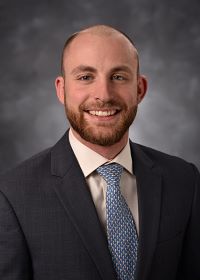
Michael Cookson, MD, MHS
Children’s Hospital Colorado & University of Colorado
My work within the Pediatric Heart and Lung Center has been to better understand how the adverse intrauterine environment of preeclampsia contributes to the chronic lung disease of prematurity, bronchopulmonary dysplasia (BPD). My project has demonstrated that a single intraamniotic injection in late gestation of the rat with the soluble VEGF antagonist, sFlt-1, leads to sustained abnormalities in lung and vascular development associated with right ventricular hypertrophy. Epidemiological studies have informed us that Vitamin D deficiency may contribute to preeclampsia, preterm birth, and the development of BPD. We have demonstrated that a critical component of vascular development, endothelial cells, are impaired following sFlt-1 exposure and that Vitamin D given as an intraamniotic treatment or as a growth factor during in vitro assays improves endothelial cell health.
My recent work sought to understand the impact on intraamniotic Vitamin D on lung development and the proangiogenic signaling axis of VEGF in our sFlt-1 model. Using our model of intraamniotic exposures, we have demonstrated that intraamniotic treatment with Vitamin D improves pulmonary vascular development and function. My most recent work was to study the molecular mechanisms of Vitamin D therapy in the newborn lung following sFlt-1 and Vitamin D treatment exposures. Using whole lung samples out results demonstrate that intraamniotic Vitamin D increases expression of the key angiogenic proteins VEGF and endothelial nitric oxide synthase (eNOS). These initial studies suggest that Vitamin D has a direct impact on angiogenesis through improved endothelial cell health and considered as a therapeutic option for mitigation of early lung disease in premature infants.

Jeremy Sandgren, MD PhD
University of Iowa
My research examines the role of iron in neonatal sepsis, which is a leading cause of mortality in neonates worldwide. This particular research highlights the role of bacterial iron scavengers, called siderophores, in neonatal sepsis. In short, we demonstrated that neonatal mice have increased iron in their peritoneal cavity, which predisposes them to severe infection from E. coli. However, if we restrict the ability of E. coli to acquire iron by knocking out its siderophores, we can prevent severe infection. Specifically, targeting the siderophore enterobactin prevents all mortality caused by E. coli in our neonatal sepsis model.
These data are exciting because they provide novel targets for therapies designed to prevent or cure neonatal sepsis. Currently, we are designing vaccines against enterobactin and other siderophores to see if they can prevent severe infection caused by E. coli in neonatal mice. In the future, we hope these vaccines can be used in pregnant mothers to prevent early onset sepsis in their newborn infants.
Fellows’ Clinical Research Award (3 awards given annually)
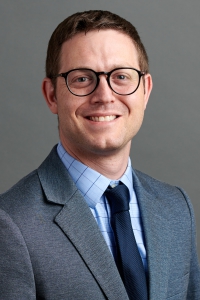
Landon Krantz, MD
Cincinnati Children’s Hospital Medical Center
The American Academy of Pediatrics recommends close monitoring of adolescents with depression. Specifically, the National Committee for Quality Assurance recommends that all patients 12 years and older be screened for depression, and if their screen is positive, receive follow-up care within 30 days. These 30 days are crucial to monitor any progression in symptoms, the response to treatment, and risk of suicide.
Through quality improvement work, we aimed to increase the 30-day follow-up rate at our pediatric primary care centers from 18% to 35% within 12 months. A multidisciplinary team convened regularly to test interventions such as collaboration with psychology for urgent referrals, follow-up phone calls from care management, and clinician education and support.
Following our interventions, we increased the 30-day follow-up rate for adolescents who screen positive on their PHQ-9 (a score >=10 and/or an affirmative answer to question #9 regarding suicidality) from 18% to 44%. Our clinics average 625 abnormal PHQ-9 screens annually. Therefore, on average, an additional 144 adolescents per year are receiving the recommended depression follow-up within 30 days of their abnormal screen.
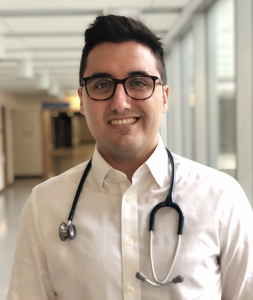
Cal Robinson, MD
The Hospital for Sick Children, Toronto, Canada
Dr. Cal Robinson is currently a pediatric nephrology fellow at SickKids (Toronto, Canada) and a PhD student in Clinical Epidemiology platform at the University of Toronto. He completed his medical training in the United Kingdom at St. Andrews and Manchester before returning to McMaster University (Hamilton, Canada) for his pediatric residency.
Under the supervision of Dr. Rahul Chanchlani and Dr. Michelle Batthish at McMaster, he developed a passion for research using population-based health administrative data. Cal has leveraged this big data to study the long-term outcomes and healthcare resource utilization of common pediatric diseases including high blood pressure, acute kidney injury, posterior urethral valves, and Kawasaki disease.
He is currently pursuing a PhD (co-supervisors: Dr. Rulan Parekh and Dr. Anna Heath) using novel research methods, including target trial emulation of observational data and Bayesian adaptive clinical trials to evaluate therapies for childhood nephrotic syndrome.

Kristan Scott, MD
Children’s Hospital of Philadelphia
Dr. Kristan Scott is a second year Neonatal-Perinatal Medicine Fellow at the Children’s Hospital of Philadelphia. He received his Bachelor of Arts degree in Molecular Biology from Princeton University. He then received his medical degree from Harvard Medical School. He was a pediatric resident and chief resident at the Boston Combined Residency Program (Boston Children’s Hospital and Boston Medical Center). His academic interests lie in perinatal health services research and policy. He is focused on understanding the drivers of racial and ethnic disparities in maternal and infant morbidity and mortality.
More than half of all maternal deaths happen after birth. However, 20-40% of patients do not attend postpartum visits. Parents of preterm infants face unique stressors such as neonatal intensive care unit stays that may affect their personal use of healthcare. Whether parents of preterm infants admitted to the NICU are at particularly high risk of lacking postpartum care is unknown. The goal of his current work is to understand drivers of postpartum care receipt (or lack thereof) among NICU parents.
Richard D. Rowe Award in Clinical Research (1 award given annually)
 Scott Jelinek, MD, MPH, MAEd
Scott Jelinek, MD, MPH, MAEd
The Children’s Hospital of Philadelphia
Dr. Jelinek is a third year Adolescent Medicine Fellow at the Children’s Hospital of Philadelphia and an associate fellow with the Leonard Davis Institute of Heath Economics at the University of Pennsylvania. His research is dedicated to investigating ways to leverage health information technology, educational interventions, and clinical innovations to advance the health and wellbeing of LGBTQ+ youth and their families and improve their access to outstanding and affirming health care.
Dr. Jelinek is awarded the 2024 SPR Richard D. Rowe Award in Clinical Research for his study, “Inclusion & privacy in practice: examination of sexual orientation and gender identity data collection and confidentiality concerns among LGBTQ+ adolescents in a large pediatric primary care network,” which was accepted as an oral platform presentation at the 2024 Pediatric Academic Societies Annual Meeting. This research underscores the critical balance between comprehensive data collection and the protection of privacy and wellbeing for LGBTQ+ adolescents. Dr. Jelinek’s findings brings to light the necessity for healthcare providers to be acutely aware of the privacy concerns and preferences for electronic data collection among LGBTQ+ youth, advocating for a healthcare system that prioritizes both inclusivity and the safeguarding of sensitive information.
As Dr. Jelinek continues his career as a physician-scientist, he remains committed to advancing innovative research and to the development of policies and interventions that foster a more inclusive, patient-centered, and supportive healthcare system for all adolescents.
Clinical Research Award for Fellows, sponsored by the Emerging to Established (E2E) SPR Members’ Section (2 awards given annually)
 Gabriel Devlin, MD/CM
Gabriel Devlin, MD/CM
Children’s Hospital Los Angeles
Gabriel Devlin is a second year Pediatric Emergency Medicine Fellow at Children’s Hospital Los Angeles (CHLA). A Washington DC native, he earned his medical degree at McGill University in Montreal, Canada and completed his pediatrics residency at the University of California, San Francisco. In fellowship he has led various emergency department initiatives aimed at preventing opioid overdose, including enhancing substance use screening, distributing free naloxone kits to patients, and implementing a buprenorphine induction program. His current research leverages large clinical databases to more effectively identify youth at risk for opioid overdose. Gabriel is also passionate about medical education and the care of underresourced communities. He volunteers regularly for Refugee Health Alliance, a non-profit that provides medical care to refugees based in Tijuana, Mexico. In his free time he loves mountain adventures, bikepacking, and the eternal search for good coffee.

Nikita Kalluri, MD
Boston Children’s Hospital
Nikita Kalluri is a 3rd year Harvard Neonatal-Perinatal Medicine Fellow and a Health Services research fellow at Boston Children’s Hospital, funded by an AHRQ T32 training grant. Her work is centered around perinatal health equity, especially as it pertains to family engagement and family-provider communication. She hopes to continue her path in health services research to reduce disparities in NICU bedside communication and engagement.
She is awarded the 2024 SPR Fellows’ Clinical Research Award for her study titled “Racial/Ethnic Disparities in Mother’s Milk Initiation and Continuation among Mothers of Preterm Infants. This work is a novel demonstration of prevalence, trends, and disparities in breastfeeding in the preterm population over the course of several years, using a nationally representative database. This work highlights the need for equitable breastfeeding support to provide breast milk to the most vulnerable infants.”

